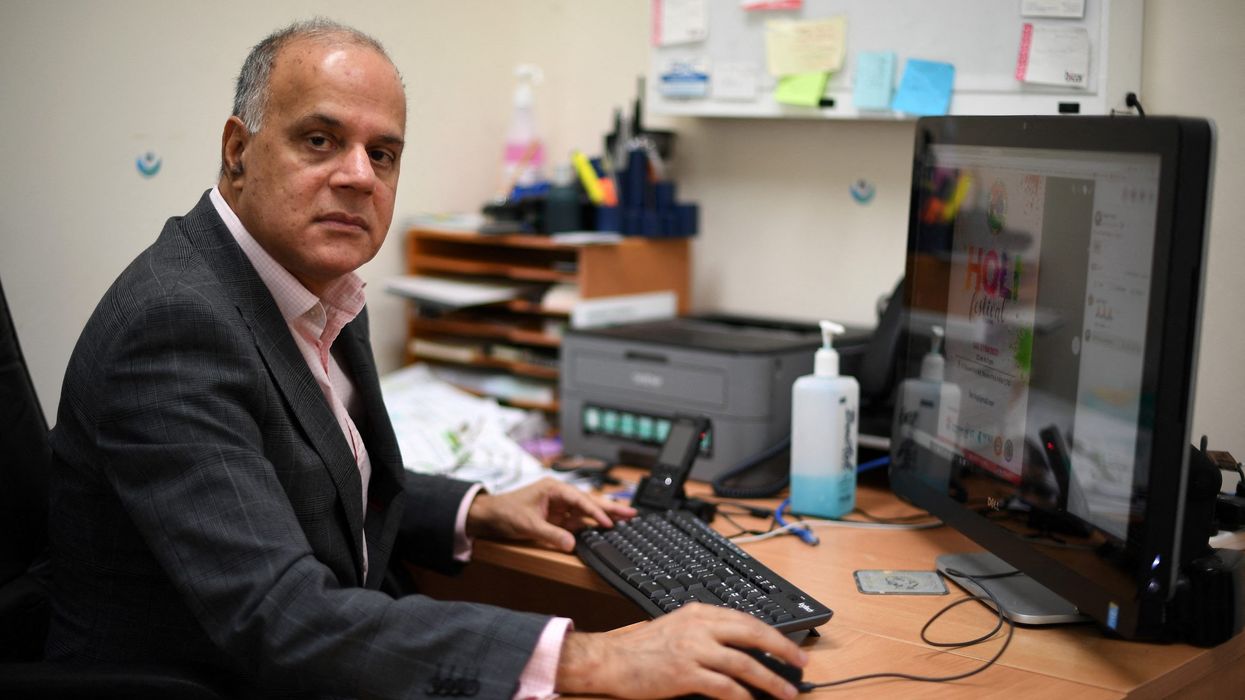Living half a world away from Covid-stricken Indian relatives, Sydney doctor Yadu Singh has beat back his frustration at being unable to help by providing lifesaving medical guidance via phone, text and video chat.
It was 4 am in eastern Australia, and finally, bleary-eyed, the veteran cardiologist had found a hospital bed for his niece's husband.
The patient would have to endure a gruelling eight-hour drive out of virus-swamped Delhi, but at the end of the road lay the promise of oxygen, and with it, a chance for survival.
Like many in India's millions-strong diaspora, Singh has watched in abject horror as coronavirus consumes the country, infecting more than 360,000 people every day.
"The last four to five days, they have been very difficult, very challenging," he told AFP from his office in a verdant Sydney suburb.
"We actually can't do much sitting 10,000 kilometres away."
The local Indian community considered trying to send medical supplies such as life-saving oxygen concentrators, but Singh knew they would be tough to acquire, take a long time to arrive and would do little against the tidal wave of cases.
For Singh however, thanks to his medical training and contacts, he was in a better position to help than most.
Over the last week or more, he has been working the phones and his contacts to help friends, relatives and online acquaintances across India.
He managed to WhatsApp one CT scan to a classmate who is a respiratory specialist, who in turn was able to advise a local doctor about more effective treatment.
"That medicine I believe was life-saving," said Singh. "Thank God we have WhatsApp."
He has offered informal advice about temperatures, oxygen saturation levels, when to go to hospital and when to stay put and take a paracetamol.
On another occasion, one morning at 3:30 am he was contacted by a Twitter acquaintance living in California asking for advice about a sick aunt.
He managed to pass details of the woman to a Delhi member of parliament who was also on Twitter and could help get her treatment.
Singh later received a message from the relative saying: "My aunt is doing much better. Thank you very much. You have saved her life."
- 'Do your duty' -
"I can't treat people sitting in Australia," said Singh. "Without seeing the patient, I can only guide them on what to do."
"That's what we can do sitting in such a faraway place. Guiding them, assisting them, giving them hope."
But sometimes, guidance and hope have not been enough.
When his niece's mother-in-law had 80 percent oxygen saturation -- 15 percentage points lower than normal levels -- Singh called the principal of the local hospital, a former colleague, for help.
"He said, 'I will try to help, but (there is) no bed in ICU.' And half an hour later -- you can't survive with 80 percent oxygen -- she died."
"This is so painful. I knew her personally. Her brother was my classmate," he said.
"We feel helplessness, hopelessness.
"I have lost three of my circle of relatives... one passed away last night."
Singh fears political mismanagement means the situation in India is only going to worsen.
"If we don't break the transmission chain, what is going to happen?" he said.
In the face of what he calls a "doomsday situation", for now he is trying follow the Hindu scripture "do your duty, don't worry about the outcome".
Tonight, he said, that duty comes in the form of a webinar on Zoom where he plans to tell family members the key message: "Please use a mask, do the handwashing and get the test done."












